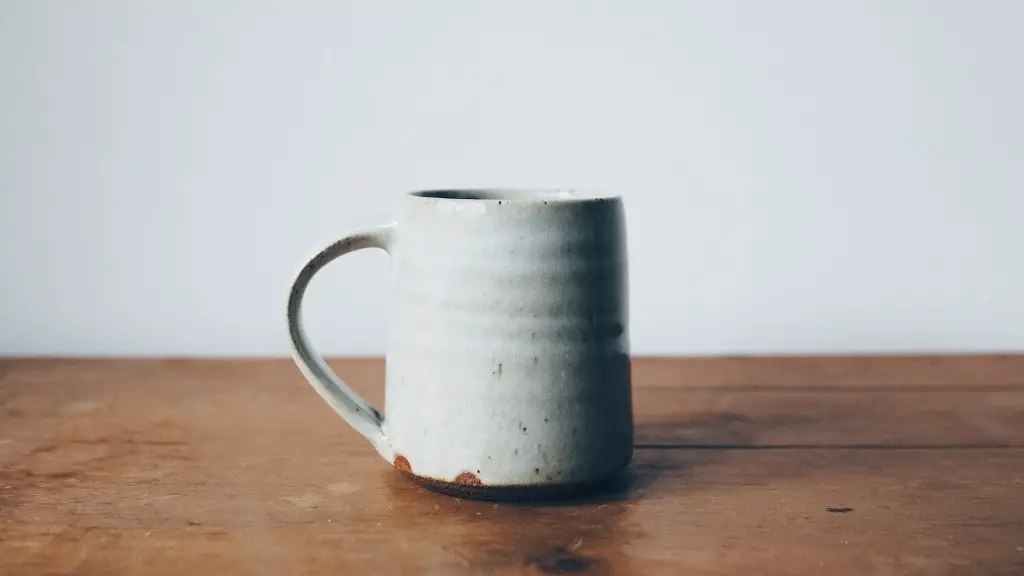Why can’t I drink coffee?
Coffee consumption has been part and parcel of our morning rituals for years, and for those looking for a caffeine boost to mark the start of their days, a hot cup of freshly brewed coffee is the go to beverage. But for many of us, coffee drinking is not always a viable option. There are a range of reasons why coffee may not be suitable for us, some physical, some medical and some derived from personal choice. In this article we examine five of the leading reasons as to why some people cannot infuse themselves with the wonder-drink that is coffee.
Health Concerns
The high levels of caffeine present in coffee can often be the cause of various health issues. Coffee can have a detrimental impact on the cardiovascular system and people with conditions such as an irregular heartbeat, hypertension and diabetes will often be advised against consuming it. High levels of caffeine can also cause restlessness, difficulty sleeping and a spike in blood sugar levels. Another physical side effect of coffee is that it can be a diuretic, meaning too much consumption can lead to dehydration and cause disruptions in electrolyte levels.
Pharmacological Reasons
Coffee consumption can have a profound effect on your body’s ability to react to medication. Many medications used for mental health issues such as depression and anxiety can be rendered predominantly ineffective when taken alongside coffee. This is due to coffee’s ability to reduce serotonin levels. Caffeine can also interact with numerous other medications, such as over the counter painkillers and medications used to combat allergies. So before taking any medication, it is wise to consult with a medical professional in order to see if coffee consumption is compatible or not.
Pregnancy
Not only is it wise for pregnant women to avoid coffee, but in some cases it may be outrightly discouraged by their doctor. The high levels of caffeine present in coffee can have numerous adverse effects on the baby and the mother. It is thought that caffeine consumption during pregnancy can lead to a smaller than average birth weight, high blood pressure and a risk of developing diabetes. Caffeine is also thought to sometimes lead to a premature birth, so if you do find yourself with a bun in the oven it may be time to switch to herbal teas instead.
Personal Preference
One of the main reasons people choose to abstain from coffee is due to a personal dislike of the taste, aroma or texture of the drink. Though this is not stopping them from drinking coffee per se, it is a factor in many people’s decision not to indulge in it. Furthermore, those trying to cut down on their caffeine intake may be put off by the higher levels present in coffee than in other drinks such as tea or hot chocolate.
Religious Reasons
There are also religion based reasons why some people may not consume coffee. Certain faiths such as Islam, prohibit eating and drinking certain substances, and coffee, due to its chemical makeup, falls within these categories. Furthermore, certain faiths will ask their members to give up certain substances during certain periods of the year, such as during Ramadan, a time when Muslims increased their prayer and often abstain from consuming any form of stimulant.
Financial Reasons
Finally, for some people the price of coffee, when purchased from cafes, may be a factor in their decision whether or not to drink it. Especially when taken alongside the high costs of dairy, vegan or non-dairy milk, the cost of coffee can ratchet up pretty quickly. Buying a bag of beans and grinding them yourself could be a more cost effective route, however in some cases, it may simply be easier and more cost effective to just say no.
Coffee Withdrawal
Coffee is a stimulant, and thus frequent, heavy use of it will often have a calming, numbing effect on the mind and body. This is helpful in some circumstances, but when going without coffee the opposite can take place and these effects need to be countered. Additionally, quitting coffee suddenly can lead to headaches and drowsiness as the body tries to cope with the sudden influx of caffeine. Thus, if you plan to give up on coffee, it is best to do so gradually, reducing your intake over a period of time and then weaning it off completely.
Acid Reflux
Coffee can be a big trigger for those suffering from acid reflux, a condition where stomach acid rises into the esophagus and can cause discomfort and even lasting damage. Many with the condition believe that coffee causes an increase in stomach acid production, especially when taken on an empty stomach. This means that those prone to acid reflux may be best off avoiding coffee as much as possible, in order to reduce the pain and discomfort associated with the condition.
Prostaglandins
Prostaglandins are hormone-like substances found in the body which help regulate certain hormones, and coffee consumption has been linked to an increase in their production. Too much consumption of coffee can therefore have a detrimental effect on people with conditions such as allergies, asthma, and depression, as it causes a spike in the over production of hormones, which can then lead to an array of symptoms. Thus, for those with sensitive constitutions, a cup of coffee could be best avoided in order to avoid the side effects of an influx of hormones.
Coffee Alternatives
Those who can’t drink coffee but are averse to caffeine can find an array of options to choose from. Herbal teas and energy drinks are much lower in caffeine than coffee and can offer a lower impact stimulation without having to worry about the side effects that coffee drinking may bring. Another drink that has emerged in recent times is ‘Golden Milk’, a liquid beverage made from turmeric, honey and black pepper, said to possess numerous medicinal properties. There are a plethora of other alternatives, even alcohol free beer for those looking for a subtler kick of stimulation.
Lifestyles Habits
One of the reasons why some cannot drink coffee is due to lifestyle choices or habits. Coffee is a stimulant, and thus those prone to anxiety or depression may avoid it, as it tends to increase the levels of these emotions. It is also thought that it can cause an increase in certain distressing conditions, when taken in conjunction with the stress that many of us experience on a day-to-day basis. Though there can be many positives associated with coffee drinking, those with a predisposition of more serious conditions may in time choose to avoid it in order to protect their mental health.
Cultures and Social Norms
Coffee drinking can have multiple social implications, especially when it is not widespread in a particular culture. Coffee may be seen as an ‘outsider’ beverage, one that does not fit within that particular culture’s norms, and for this reason some people may chose to forego it. Additionally, those from certain cultural backgrounds may choose to abstain from coffee as a way of staying sold to the beliefs and norms of their families and communities, though development and innovation can see these norms shift and develop.
Dairy and Vegan Substitutes
Coffee can also be difficult for those with particular dietary preferences, such as those on vegan or dairy free diets. Luckily, there are many milk alternatives available, including oat milk, soya milk and even nut milks. Though most of these alternatives are more expensive than milk produced using animal sources, they are gaining in popularity and are often much easier to obtain than they used to be.
Simangan or Coffee Addiction
Simangan, or coffee addiction, is another reason why some may find themselves unable to drink coffee. Though this is arguably less common than the other reasons mentioned, it can be a major problem for some which may lead to an inability to consume the drink at all. Coffee addiction is marked by an inability to control your coffee drinking habits, often drinking too much despite any negative effects and may even be accompanied by withdrawal symptoms when attempting to quit. The best way to deal with coffee addiction is to first recognize it and then treat it through negative reinforcement techniques and seeking help from a medical professional.



